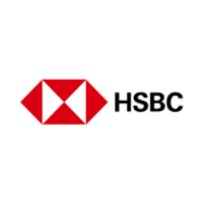Financial Results
Wealth, Group Profits Surge At HSBC

While some parts of the UK banking sector have been in turmoil, at HSBC, which earns a large chunk of its revenues in fast-growing Asia, has chalked up a strong set of results.
HSBC’s wealth and personal banking arm, which includes its
private bank, said its pre-tax profit in the half-year to 30 June
surged 39.7 per cent year-on-year to $8.592 billion.
Across the entire firm, pre-tax profit doubled (100 per cent) to
$21.657 billion, benefiting from forces such as higher interest
rates, it said yesterday.
Net operating income at the wealth and personal banking arm stood
at $15.698 billion in H1 2023. Total operating costs were
$7.141 billion.
At the end of June, invested assets at the WPB business stood at
$1.097 trillion, rising from $1.014 trillion a year before.
For the commercial banking arm of HSBC, pre-tax profit rose 36.7
per cent to $7.939 billion; in its global banking and markets
business, pre-tax profit rose 16.5 per cent to $3.58 billion, and
in its corporate centre business, the profit figure was up 7.1
per cent, to $1.546 billion.
“We have delivered a strong first half performance and are
confident of achieving our revised mid-teens return on tangible
equity target in 2023 and 2024. There was good broad-based profit
generation around the world, higher revenue in our global
businesses driven by strong net interest income and continued
tight cost control. I am also pleased that we can reward our
shareholders with a second interim dividend of $0.10 per share
and a second share buy-back in 2023 of up to $2 billion, with
substantial further distribution capacity still expected ahead,”
Noel Quinn, chief executive, said in a statement.
The results are likely to give Quinn and colleagues more
ammunition to resist calls for the business to be broken in order
to release supposedly more value. Last
year, Ping An Insurance Group of China, aka Ping An, called
on HSBC to slash costs and quit sub-scale non-Asia markets. On 19
April last year, HSBC said that its "existing strategy is working
and is delivering improving returns and dividends." The bank
made no reference to the matter in yesterday’s main statement
release.
Shares in HSBC, which is listed in London and Hong Kong, were up more than 1 per cent around midday, London time, yesterday.
Selling businesses
During the period covered by the results, HSBC’s UK business
bought
the UK arm of Silicon Valley Bank as part of a rescue of the
embattled SVB group. It has also sold its retail banking arm in
France to My Money Group and its Canadian business to Royal Bank
of Canada. HSBC has also launched a high net worth and ultra-HNW
business for
India, tapping into the rising wealth of that
country.
In other details, HSBC said expected credit losses and other
credit impairment charges, of $1.3 billion in the half-year
period, reflected a more stable outlook in most markets, it
said.
One of the drivers of the overall bank result was a 38 per cent
surge in net interest income – benefiting from higher central
bank interest rates – to $9.3 billion in the three months to
end-June from a year earlier.
The H1 2023 charge included $300 million relating to the
commercial real estate sector in mainland China and charges in
commercial banking in the UK. The charge of $1.1
billion in the same period a year ago, which reflected
heightened economic uncertainty, mainly due to the Russia-Ukraine
war and inflationary pressures, included $300 million linked to
the commercial real estate sector in mainland China, partly
offset by releases of Covid-19-related allowances.
Net new invested assets (NNIA) fell to $34 billion in
H1 2023, from $39 billion a year earlier, mainly caused by
liquidity outflows in the US.
At the end of June, HSBC said its common equity tier 1 capital
ratio was 14.7 per cent – an increase of 0.5 percentage points
compared with Q4 2022. It was driven by capital generation
net of the dividend accrual, and included an approximately 0.3
percentage point impact from the reversal of an impairment on the
planned sale of HSBC’s retail banking operations in France and
the provisional gain on the acquisition of Silicon Valley Bank
UK. The liquidity coverage ratio was 132 per cent at the end of
June, unchanged from the first quarter. (The ratio is the
requirement whereby banks must hold a sufficient amount of
high-quality liquid assets to fund cash outflows for 30 days.)